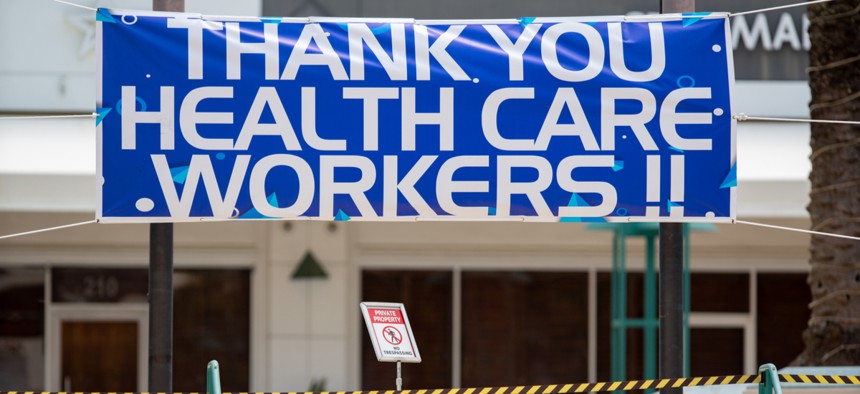Agencies Remind Employees to Remain Ethical During Pandemic

Felix Mizioznikov/Shutterstock.com
Think twice before accepting a gift from a grateful citizen or using your work computer for personal activities, agencies say.
Some federal agencies are reminding employees that ethics requirements still apply during the novel coronavirus pandemic, including rules about moonlighting and accepting gifts from thankful citizens.
The Interior Department this week sent guidance to employees flagging the "ethics-related problems" they may encounter as they respond to the unprecedented situation and face "more professional and personal demands on our time than ever before.” The guidance followed a memorandum last month from the Office of Government Ethics suggesting that all agencies send periodic reminders to their workforces to update them on ethical dilemmas they may face during the outbreak.
“Please keep in mind that, although we may be working from a more relaxed space at home, the rules and policies that govern official (and some personal) activities as department personnel continue,” Interior Chief of Staff Todd Willens said in his memo.
Willens implored employees to ensure they spend their official time on official purposes, while avoiding outside activities such as other employment or volunteering for a nonprofit. They should also avoid using official government computers for anything other than work, he said. He noted that Hatch Act restrictions still apply, meaning employees cannot engage in any partisan political activity while teleworking. He cautioned workers against "pitfalls," such as forwarding a political email from a home computer while on the clock.
Grateful citizens may offer gifts to frontline workers, Willens said, while other employees may seek to solicit donations through websites like GoFundMe. Both situations create several “ethical traps,” he said in encouraging employees to reach out to ethics officials for consultations.
“Many department employees may experience a range of hardships due to the COVID-19 pandemic,” Willens said. “Public support for our activities can lead to offers of gifts.”
He noted employees should not accept gifts from subordinates or lower-paid colleagues. Employees looking to moonlight should first receive approval for outside employment from department ethics officials, he said. And employees should immediately recuse themselves if involved in any official decision making in which they may have a conflict of interest.
“With the response to the COVID-19 pandemic requiring concerted and rapid action, we must all remain vigilant that we are not participating in efforts where we have a financial interest or where our impartiality might be questioned,” Willens said.
The Veterans Affairs Department, meanwhile, advised all of its medical center directors to include ethics officials on their coronavirus work groups. It previously released a guide to “Ethical Issues in Pandemic Influenza Preparedness and Response,” in which it noted department employees must follow ethics processes as “tough decisions may need to be made about reporting for duty, vaccination of health care workers, quarantine, diminished patient privacy, and scarce resource allocation.” The Health and Human Services Department’s Office of Research Integrity has published new guidance for ensuring that research misconduct is properly investigated during the pandemic.
The memo from OGE, which sets and reviews ethics programs at a governmentwide level, told agencies to reevaluate their risks "in light of operational changes due to the pandemic" and to bring any concerns to appropriate decision makers. Agency ethics officials should let employees know that “in times of stress and emergency … the ethics office is available to assist them in navigating ethics challenges.”






